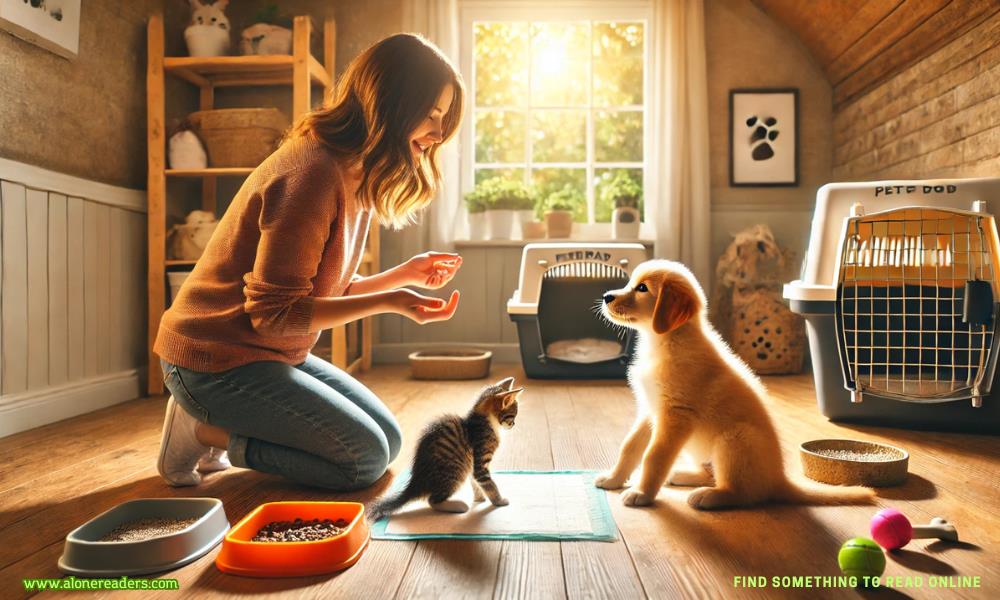Page 1 of The Awakening of Nina Fontaine
1
Nina was tornfrom her thoughts by the screeching of the subway coming to a stop. She was almost surprised to see the platform on the other side of the window. Somewhere along the way, the view on the other side of the glass had changed from the blue expanse of the Hudson River to the concrete platform at Montrose station, a sea of bodies angling to get on the train even before it came to a completestop.
She grabbed her bag and stood, inching her way to the door on unsteady feet, still unused to the wobble of the train under her feet, the unexpected jolts andsways.
She had only the vaguest of memories of getting off at Grand Central, making her way through the maze of tunnels to the train that would take her out of the city proper and over into Brooklyn. In fact, her last solid memory of the morning was standing awkwardly outside Ron Goldstein’s office with Peter after they’d signed the divorcepapers.
The doors of the subway opened with a woosh of compressed air and she followed the crowd onto the platform, working around the press of bodies waiting to get on thetrain.
She glanced at the signs for the exit. It was something she still hadn’t figured out: how to orient herself underground in order to take the most efficient exit. She usually picked one randomly only to discover she’d added an extra two blocks to her walk by taking the wrongone.
She headed for a set of stairs with a combination of giddiness and resignation. It wasn’t like the extra time mattered. There was no grocery shopping to do, no dry cleaning to pick up, no dinner parties toplan.
There was only her realtor Melissa Abrams, a woman so amenable and cheerful she would probably wait an extra hour for Nina and then say she was happy to do it because it gave her time to check her already immaculate makeup or shop from her phone for another pair of frighteningly highheels.
She exited onto the sidewalk and entered the shallow stream of people heading away from the station. Most of the crowd was heading toward it, probably on their way to work in the city. In the past decade, Brooklyn was increasingly gentrified, but a majority of the city’s employers were still across the river inManhattan.
The neighborhood was eclectic, a mix of upscale bistros and coffee shops along with the occasional bodega that had managed to stick around amid rising rents and a populace more interested in shopping at WholeFoods.
She thought about Larchmont, her suburban neighborhood north of the city, the houses spread out enough to feel private and close enough together that calling someone your neighbor still felt honest. There was no subway, and the streets were crowded with luxury cars and SUVs designed to carry kids to soccer practice and balletclass.
She wouldn’t miss it. She wasn’t any more at home there than she was in Brooklyn, and it wasn’t just the divorce. She hadn’t felt at home there in years, maybe ever, definitely not since she and Peter found out they couldn’t havechildren.
No one who worked in the city lived a half hour north of it unless it was because the public schools were good, the neighborhoods picturesque enough to raise a family, the commute to work still doable. She and Peter had been an anomaly, a lonely pair in a sea of families, although she suspected now that the “lonely” part had been more about their relationship than their lack ofchildren.
She pushed the thought away. She didn’t want to think about Peter today. Didn’t want to think about their various failures and missteps. It was over. That was the short version of the story, and the only version that mattered at themoment.
She spotted a window up ahead, an image of a steaming cup painted onto the glass under the word ROAST, and checked her phone. She wasn’t due to meet Melissa for another twenty minutes, plenty of time to grab a much-needed cup of coffee. She’d been carried through the morning by sheer nervousness — facing Peter for the first time in weeks, signing the papers that would make the end of their marriage official, the prospect of finalizing the lease on her newapartment.
Her energy was waning, the coffee she’d consumed at the house — the last time she would ever do so after handing over the keys to Peter in exchange for a buyout on her half of the house — metabolized and leaving her with caffeine crash that would be epic if she didn’t head itoff.
She picked up her pace, trying to look as focused as the people around her even though for the first time in ages she had no purpose. It was hard to remember now why she’d felt so much urgency in her old life, but it had been there, gnawing at her like a frenzied mouse searching for cheese that didn’texist.
She stepped into Roast and tried to tamp down the nervousness that was her constant companion in the city. It was ridiculous. She was a capable, intelligent, forty-five-year-old woman. There was no earthly reason why she should be nervous, why she should feel out of her element, here oranywhere.
And yet, her visits to the city — even back when she only took the train in to have dinner or go to the Met with Karen, her best friend from college — were always accompanied by the feeling that she didn’t belong, uncomfortably similar to the way she felt inLarchmont.
She’d been a refugee of sorts, her Midwestern past and the bucolic college upstate where she’d met Peter long behind her, missing a required piece of the suburban puzzle but still too provincial to fit in in thecity.
She sighed and shook her head as she made her way to the back of the line in front of the counter. She wouldn’t engage in a pity party. She would make a new home for herself, would find her place in the world without Peter — starting now, at this little coffee shop around the corner from her newapartment.
The coffee shop was cute, although she was still getting used to the microscopic size of everything in a city where real estate went for hundreds of dollars per square foot. There was room for the counter along half of one wall — a sign reading COFFEE IS LIFE behind the baristas taking orders and making coffee — and not muchelse.
Two tables were crammed next to the wall opposite the counter, but there wasn’t enough room for anyone to sit without getting jostled by the six people standing in line. A bakery case under the counter displayed pastries and glass jars held a variety of coffee beans labeled by region androast.
The crowd was young: a pretty woman in a beanie, her long hair spilling out in waves, a couple dressed in almost identical slim-fitting pants, a smooth-faced young man, a messenger bag hanging from his shoulder while he tapped on his phone, a broad-shouldered man whose face she couldn’t see, his jacket stretched across his wide back, blondish hair shaved at the back of his tanneck.
Nina felt like a tourist in a foreign land, looking for clues that would help her understand the natives. She wondered if the people around her would feel the same way in her old neighborhood, if they’d exclaim over the spaciousness of the local stores, if they’d snicker at the cardigans and tailored slacks of moms on their way to PTAmeetings.
“What can I getyou?”
The question came from a rosy-cheeked young woman with short, dark hair behind the counter, and Nina realized she’d made her way to the front of theline.
“Large coffee,black.”
The young woman shouted out her order, took Nina’s money, and handed her change. “Have a niceday.”
“You too,” Nina said, moving to the end of the counter where everyone waited for theirorders.
- Three Corporate Kings and a Hands-Off Bride by Chloe Kent
- Better than Revenge by Jisa Dean
- Mountain Rancher by Stella Banks
- The Contract by Rebekah Sinclair
- No, You Hang Up by A.J. Merlin
- The Triple Play by Mia Mara
- His Dark Purpose by Felicity Brandon
- Echo and the Homicidal Sea Panda by Kelex
- His Forsaken Alpha by Kelex
- Pack Apollo by Brandy Slaven
- Pack Giroux by Brandy Slaven
- His Kingdom by Kylie Kent
- Heartbeats & Highways by Emma Slate
- Masked Mafia's Runaway Bride 2 by Alexis Lee
- Just Say Yes by Lena Hendrix
- This I Promise by Elyse Kelly







